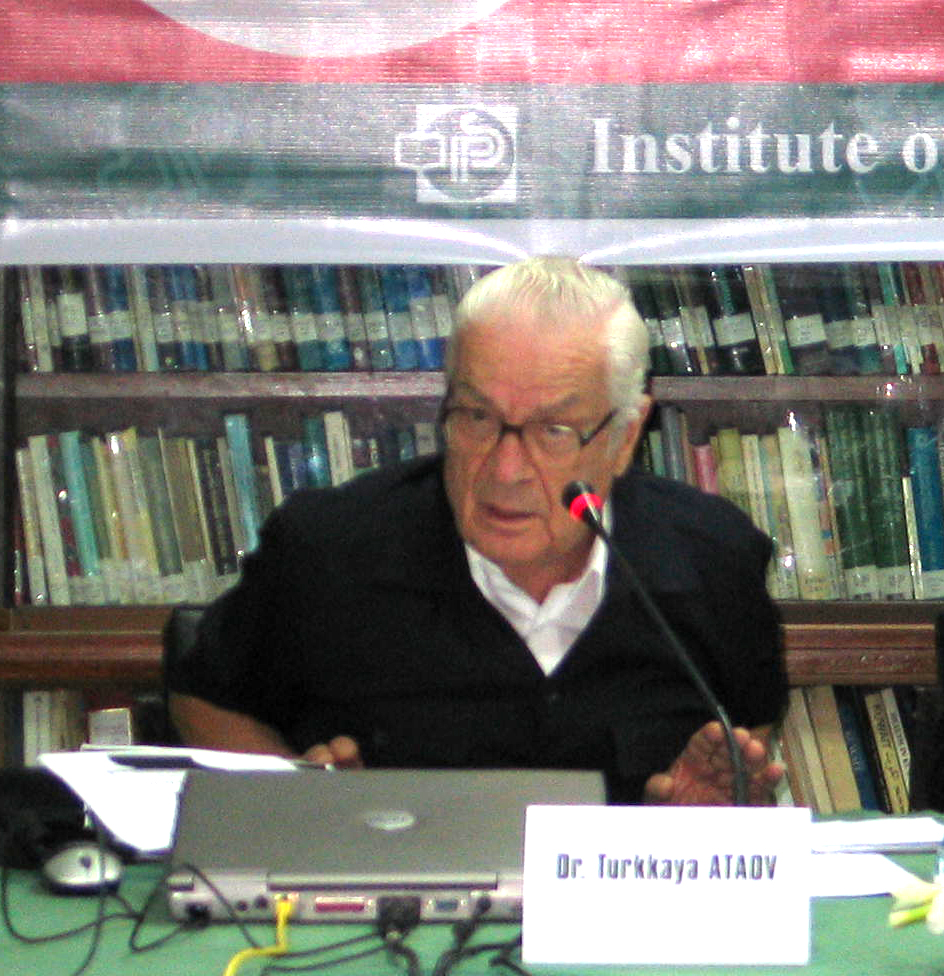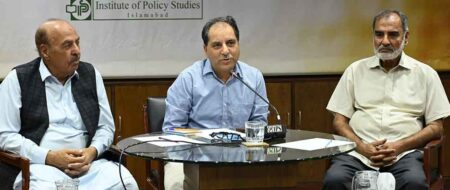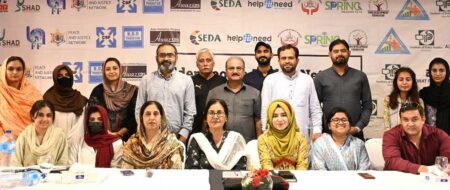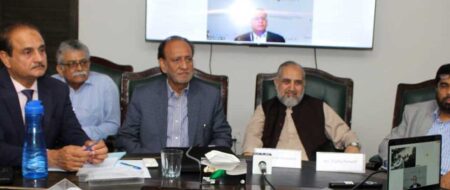Politics of Turkey: Internal and External Dimensions
“Turkey is playing an increasingly constructive and influential role in the affairs of the Middle East and emerging as an ‘accepted’ leader of the region. The warm welcome accorded to Turkish PM Recep Tayyep Erdogan in Egypt is yet another reflection of this fact.”
“Turkey is playing an increasingly constructive and influential role in the affairs of the Middle East and emerging as an ‘accepted’ leader of the region. The warm welcome accorded to Turkish PM Recep Tayyep Erdogan in Egypt is yet another reflection of this fact. The newfound leadership role of Turkey is set to be cemented and resulted in positive changes in the regional scenario.”

These views were expressed by the speakers in seminar titled “Politics of Turkey: Internal and External Dynamics” organized by the Institute of Policy Studies, Islamabad.
The main speaker, eminent Turkish scholar Dr. Turkayya Akaov lamented the racist postures of Israel and threats it posed to the regional peace. His views were echoed by Akram Zaki, former secretary general of foreign affairs of Pakistan, who said that “Israel was not a state but an outpost of imperialism”.
The speakers noted that despite the fact that western media was scaring the Arab populations away from Turkey with the use of words such as Ottomans, The Turks and Arabs were coming closer and closer. “There is no alienation between Turks and Arab, Arabs are very close to the hearts of Turks and enjoy great reverence,” he maintained.
“It was not a welcome by the Egyptians alone. It was a welcome by the Arab world,” said the Palestinian ambassador to Pakistan, Hazem Hussain Abu Shanab signaling towards the warm reception given by the people to Erdogon in Cairo yesterday.
The Turkish scholar also deliberated upon the internal developments of Turkey, highlighting that what has been happening in Turkey signalized modernization, not westernization adding that the era of Kamal Ataturk was that of enlightenment and modernization and not westernization, hence they should not be confused with each other.
He also shed light on the land reforms and empowerment of the masses as well as movement towards democratization in Turkey. He and the other speakers, however, were of the view that Turkey should remain engaged with the European Union for its membership of the block (EU).
 |
 |
“We are part of the European history for hundreds of years,” remarked Dr. Turkayya.
He said that Turkey had multiparty system, which is the essence of democracy. “Democracy is not just more than one political party but it is the phenomenon where multiple ideas exist,” the learned academician maintained. He pointed out that even in the United States real democracy was lacking as there only the two major political that were also in agreement in almost all the domestic and external issues.
Tannir Ahmad Khan, while chairing the session, said that present Turkey was very successively following the look east policy. He lauded Turkey’s economic surge and diplomatic clout that it enjoys with zero hostility.
Akram Zaki, former secretary foreign affairs, stated that the new Turkish policy reflected the slight change in terms of its economic surge and political reorientation as it is making its way between the total secularization and total obscurantism while remaining intact to the fundamentals of Islam. He observed that Turkey was also shifting its policy of the total dependence on the west and is now looking towards the east. He argued that while the US economy was collapsing, it was striving to save its economic collapse by usurping Muslims resources and preventing them from going to the hands of China.
The roundtable discussion was attended by the scholars, diplomats and students.
 |
|













